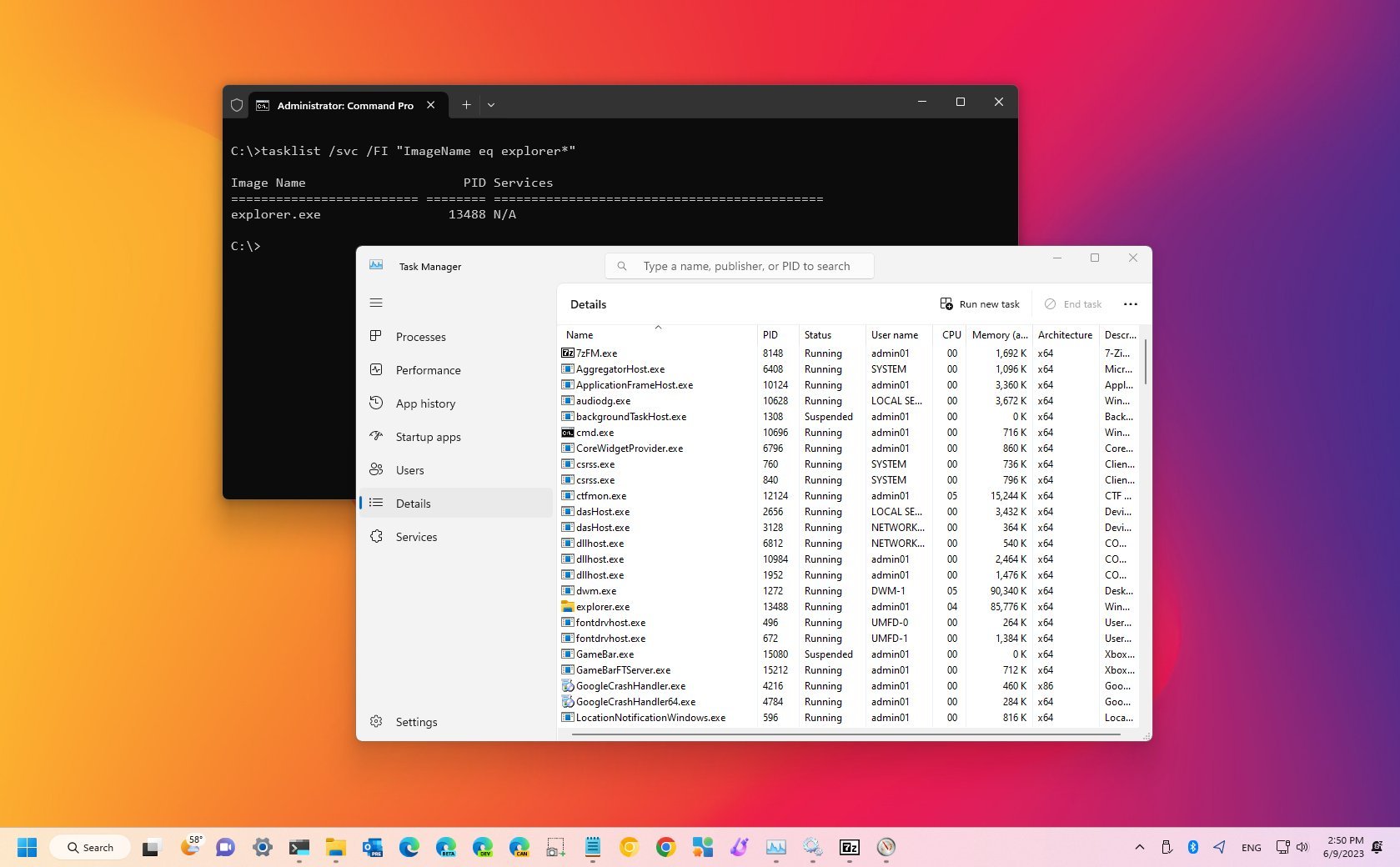
On Windows 11, applications and services receive identification numbers known as the "Process ID" (PID) to identify each process running in the system and separate the instances of an app.
Checking the Process ID of an application or service isn't something that everyone needs to know. However, it can be helpful when you have to force quit an application, check the system resources for a particular instance, or for debugging purposes.
If you must determine the Process ID for a specific application or service, Windows 11 allows you to complete this task using the Task Manager and Resource Monitor, and you can even use commands with PowerShell and Command Prompt.
This how-to guide will walk you through the steps to determine the identification number of an application running on Windows 11.
How to check Process ID from Task Manager on Windows 11
To find out the app's "Process ID" number on Windows 11, use these steps:
- Open Start.
- Search for Task Manager and click the top result to open the app.
- Quick tip: You can also use the "Ctrl + Shift + Esc" keyboard shortcut, or you can right-click the "Taskbar" and select the "Task Manager" option, right-click the "Start" button and select the "Task Manager" option.
- Click on Details from the left navigation pane.
- Confirm the Process ID for the app on Windows 11 in the "PID" column.
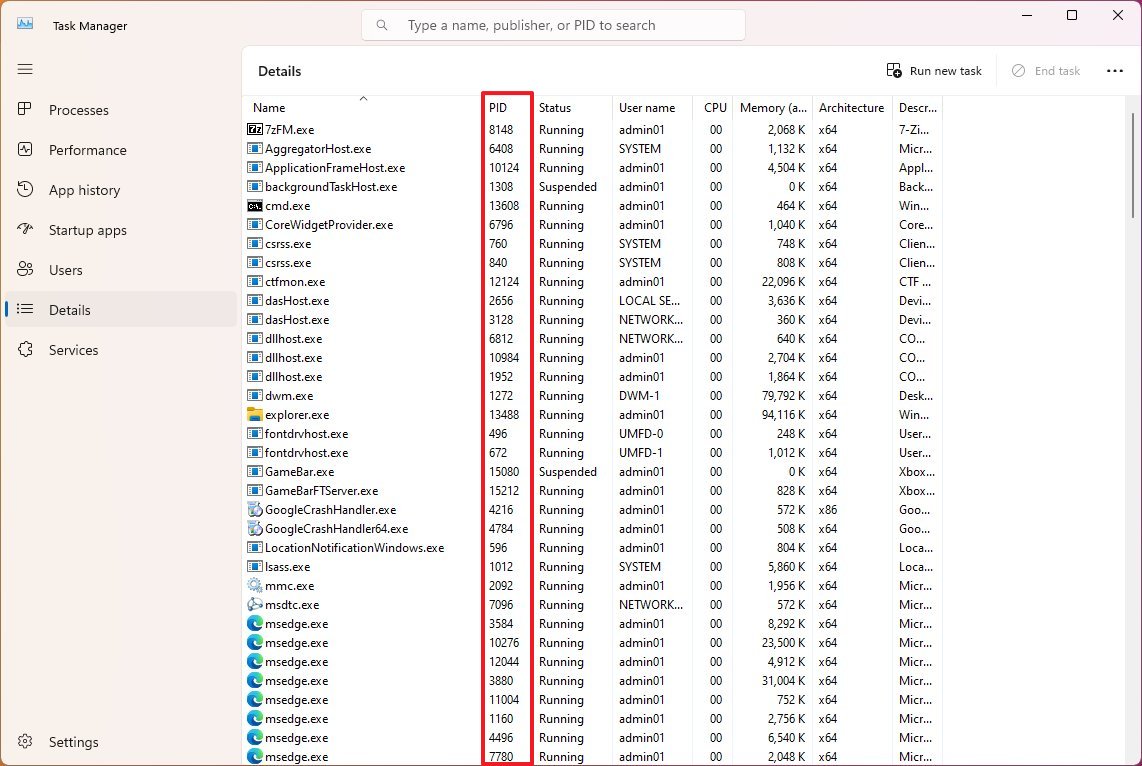
- Click on Services from the left navigation pane.
- Confirm the Process ID for the app in the "PID" column.
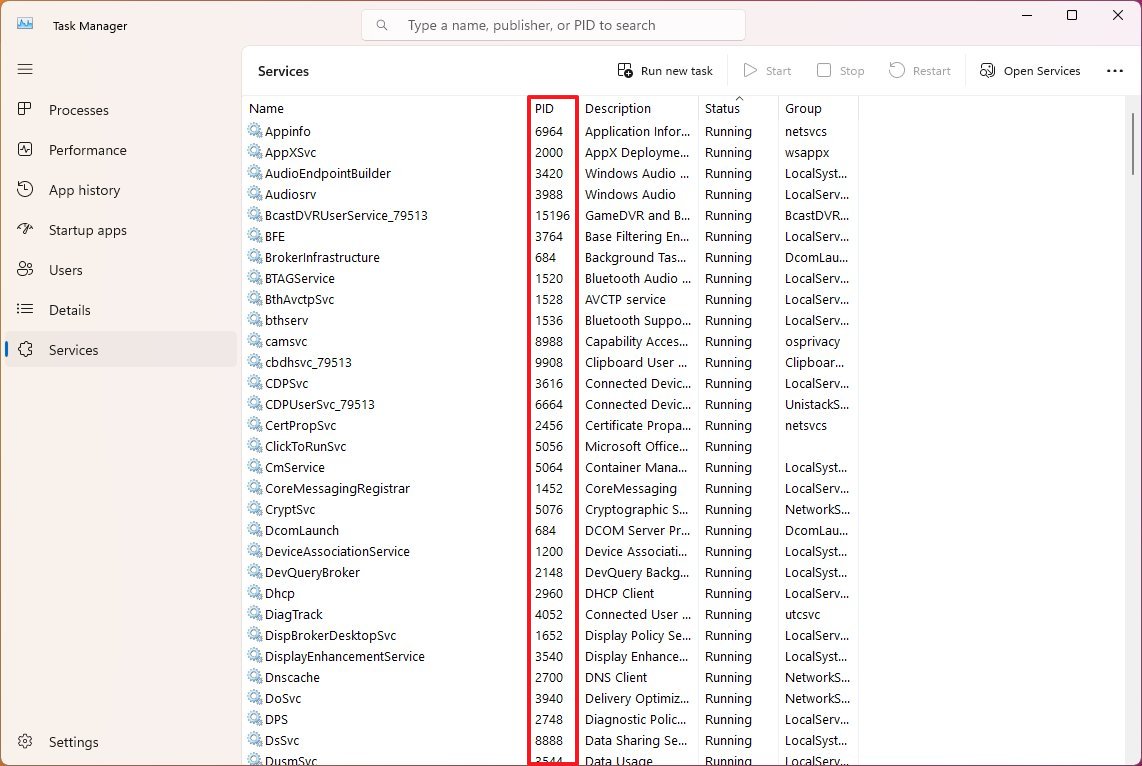
After you complete the steps, Task Manager will reveal the Process ID number for each application running on Windows 11.
How to check Process ID from Resource Monitor on Windows 11
To determine the app's Process ID through Resource Monitor, use these steps:
- Open Start.
- Search for Resource Monitor and click the top result to open the app.
- Click the Overview tab.
- Confirm the Process ID of apps and services in the PID column.
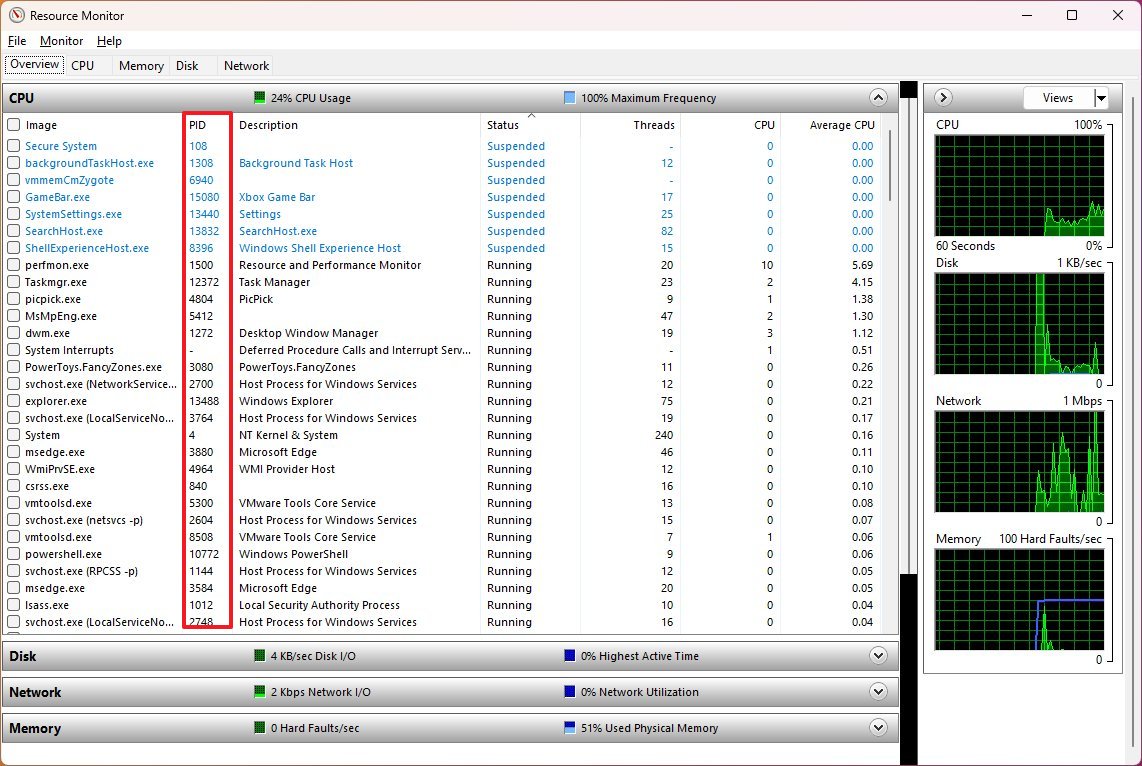
Once you complete the steps, the app will display the information in the "PID" column.
How to check Process ID from PowerShell on Windows 11
To find out the process identification number for an app through PowerShell commands, use these steps:
- Open Start.
- Search for PowerShell and click the top result to open the terminal.
- Type the following command to generate a view of processes and press Enter: Get-Process
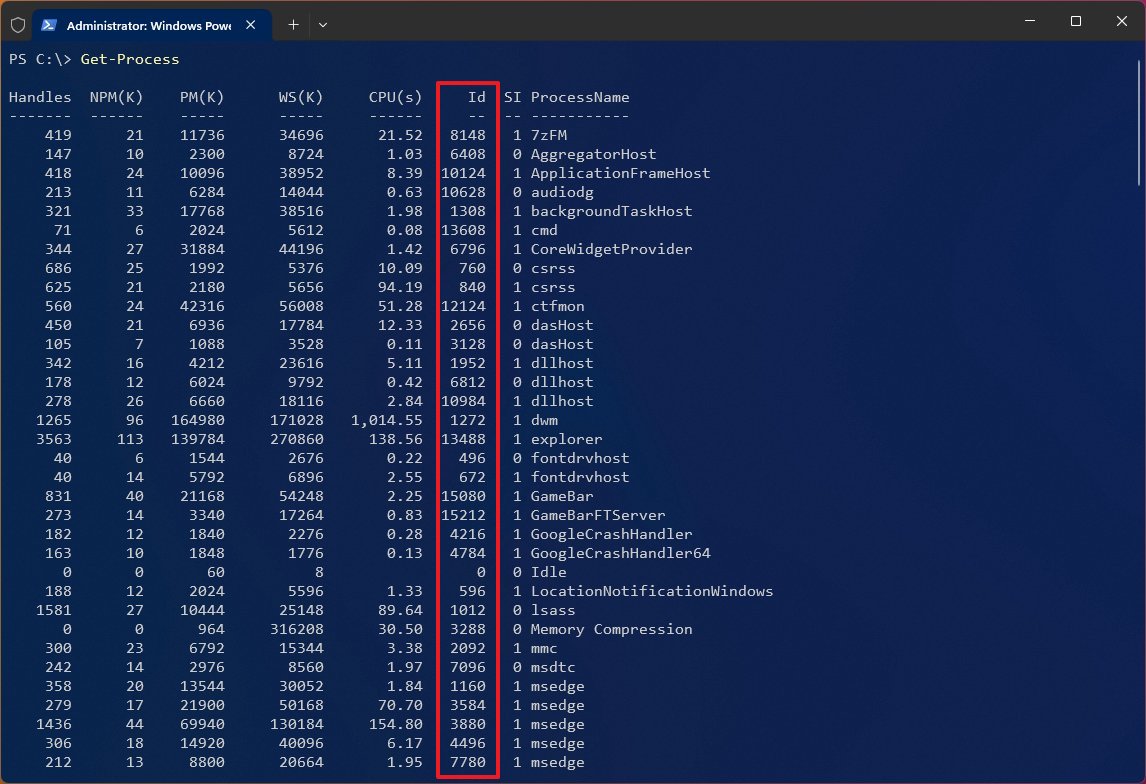
- Type the following command to view information (including ID) about a process and press Enter: Get-Process PROCESS-NAME* | Format-List *
In the command, replace "PROCESS-NAME" with the ".exe" name of the process. The "*" is a wildcard to match part of the name without having to type the exact name of the process. This example shows the Notepad Process ID and all the available information about the process: Get-Process explorer* | Format-List *
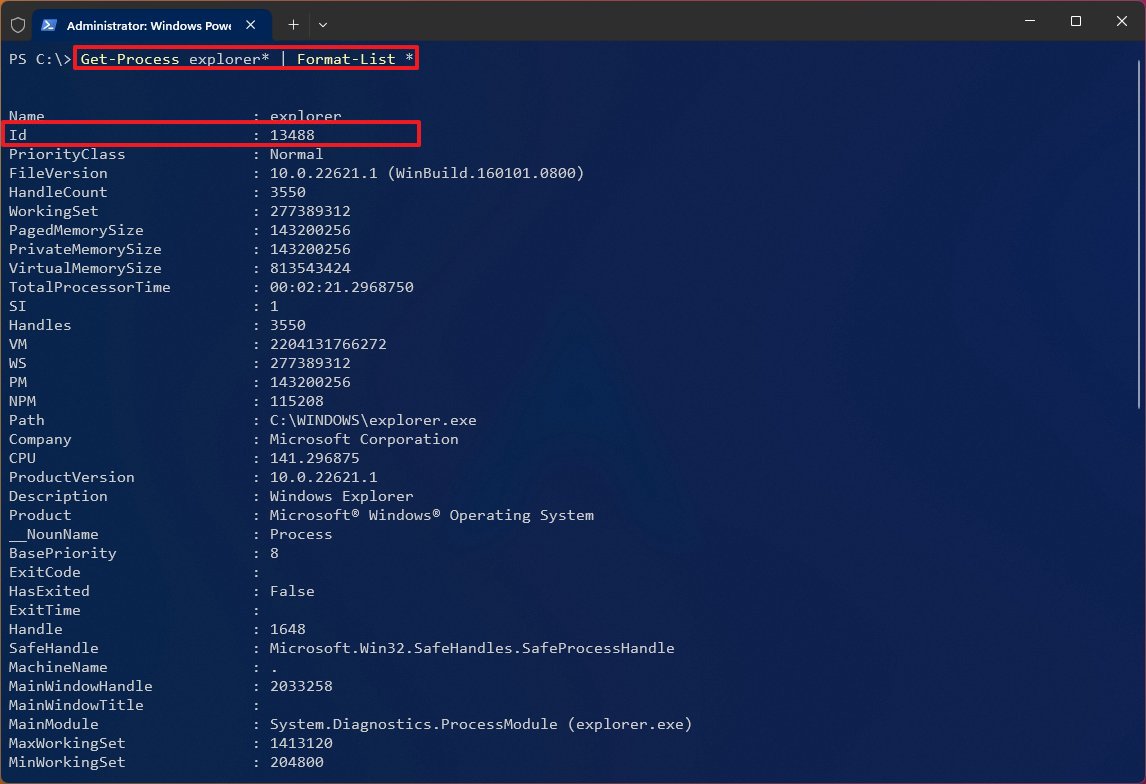
- Type the following command to determine the ID and owner of the process and press Enter: Get-Process PROCESS-NAME* -IncludeUserName
In the command, make sure to replace PROCESS-NAME with the ".exe" name of the process. The * is a wildcard to match part of the name without having to type the exact name of the process. This example shows the processes for File Explorer: Get-Process explorer* -IncludeUserName
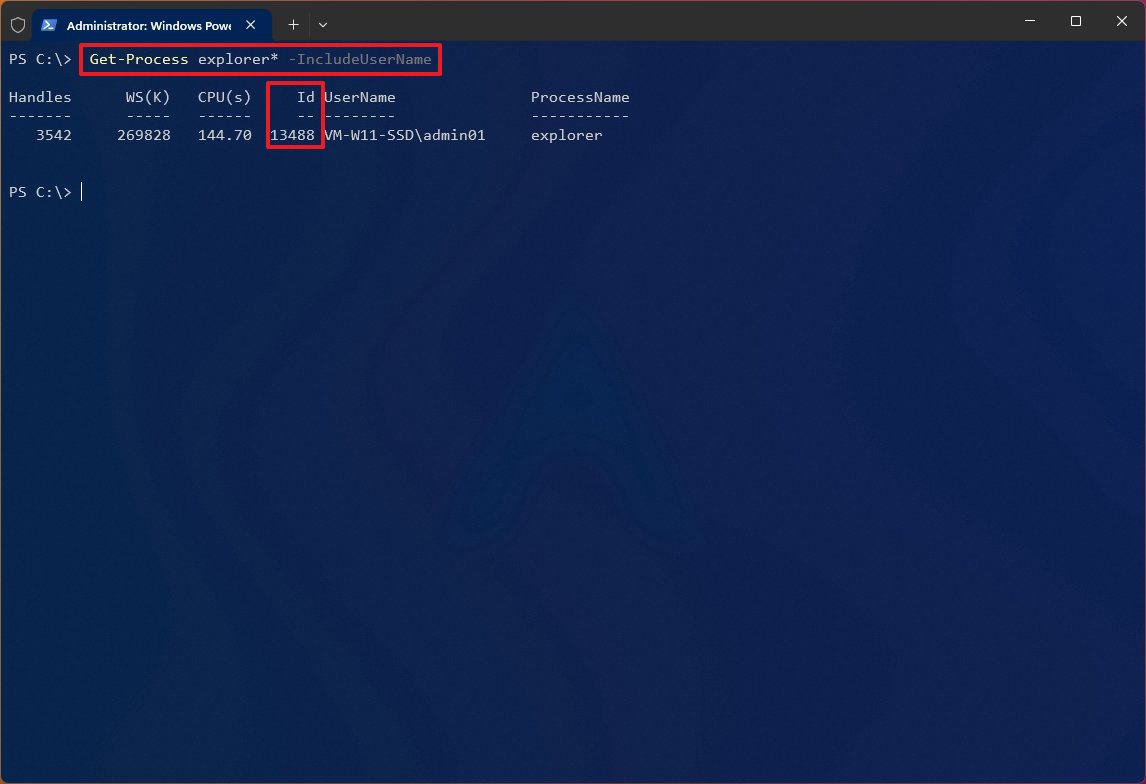
After you complete the steps, PowerShell will print a list of services with their corresponding process ID.
How to check Process ID from Command Prompt on Windows 11
To determine the ID of an app through Command Prompt, use these steps:
- Open Start.
- Search for Command Prompt and click the top result to open the terminal.
- Type the following command to view the Process ID list and press Enter: tasklist
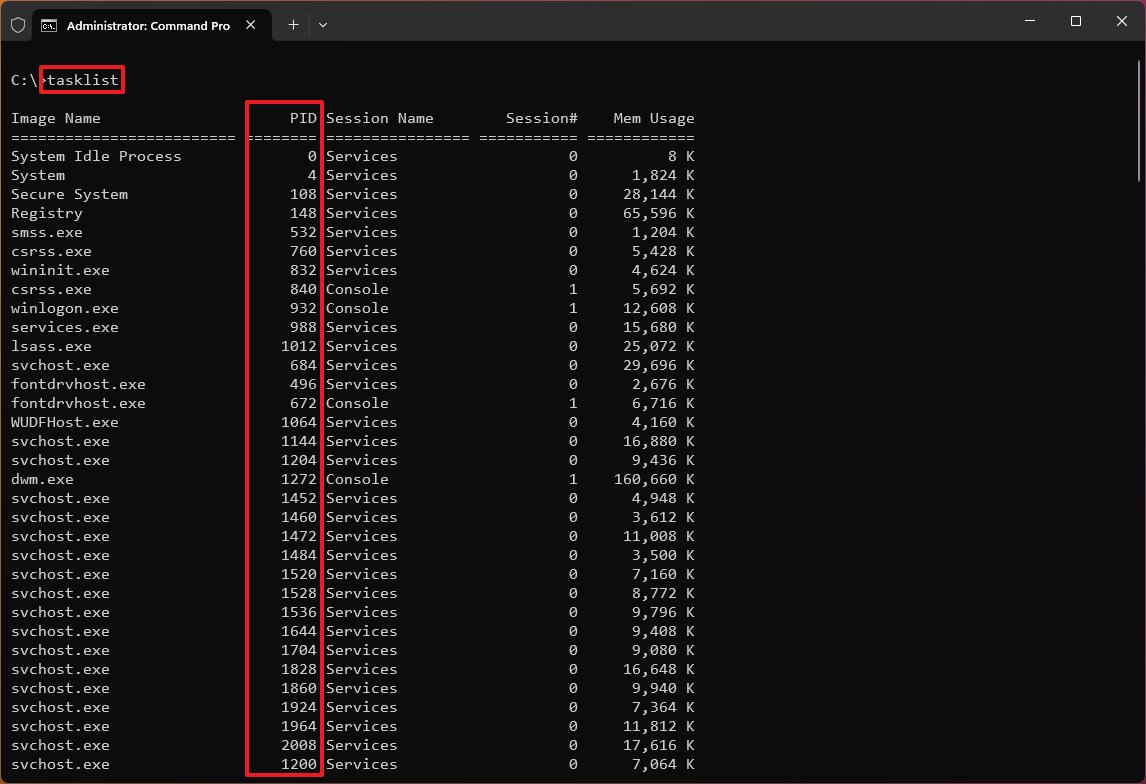
- Type the following command to view a list of Process IDs for Microsoft Store apps and press Enter: tasklist /apps
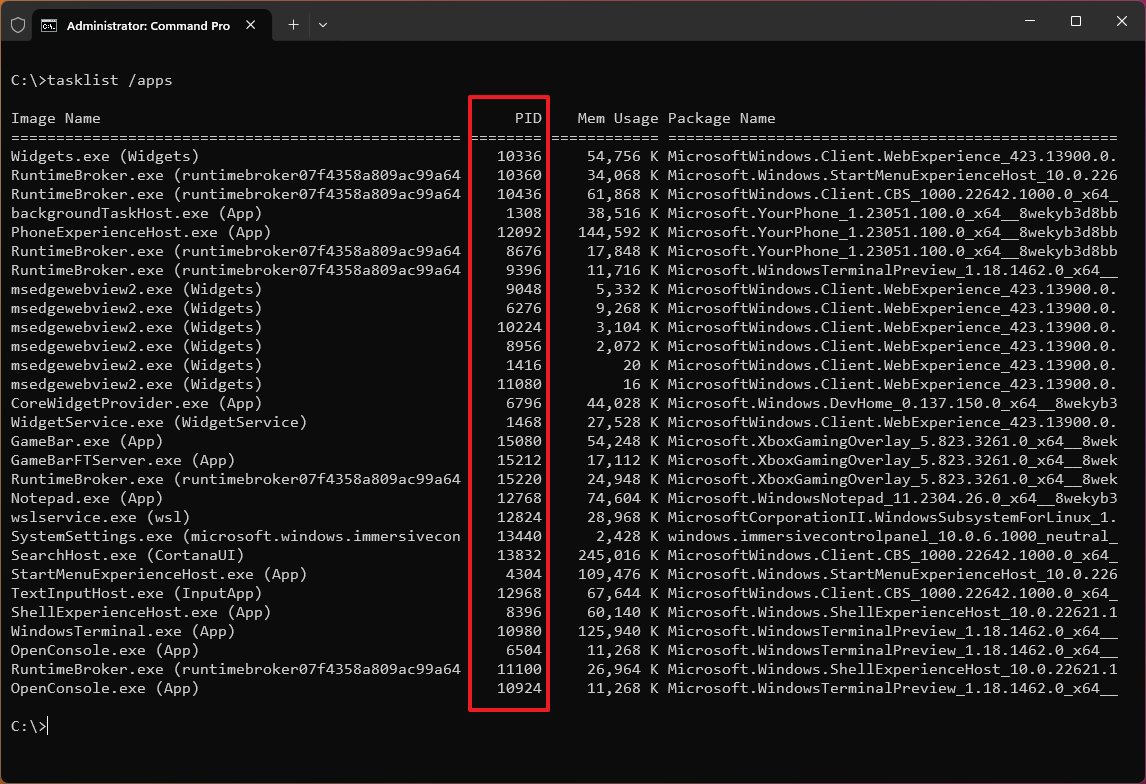
- Type the following command to get the ID from the process name and press Enter: tasklist /svc /FI "ImageName eq PROCESS-NAME*
In the command, make sure to replace "PROCESS-NAME" with the ".exe" name of the process. The "*" is a wildcard to match part of the name without having to type the exact name of the process. This example shows the processes for File Explorer: tasklist /svc /FI "ImageName eq explorer*"
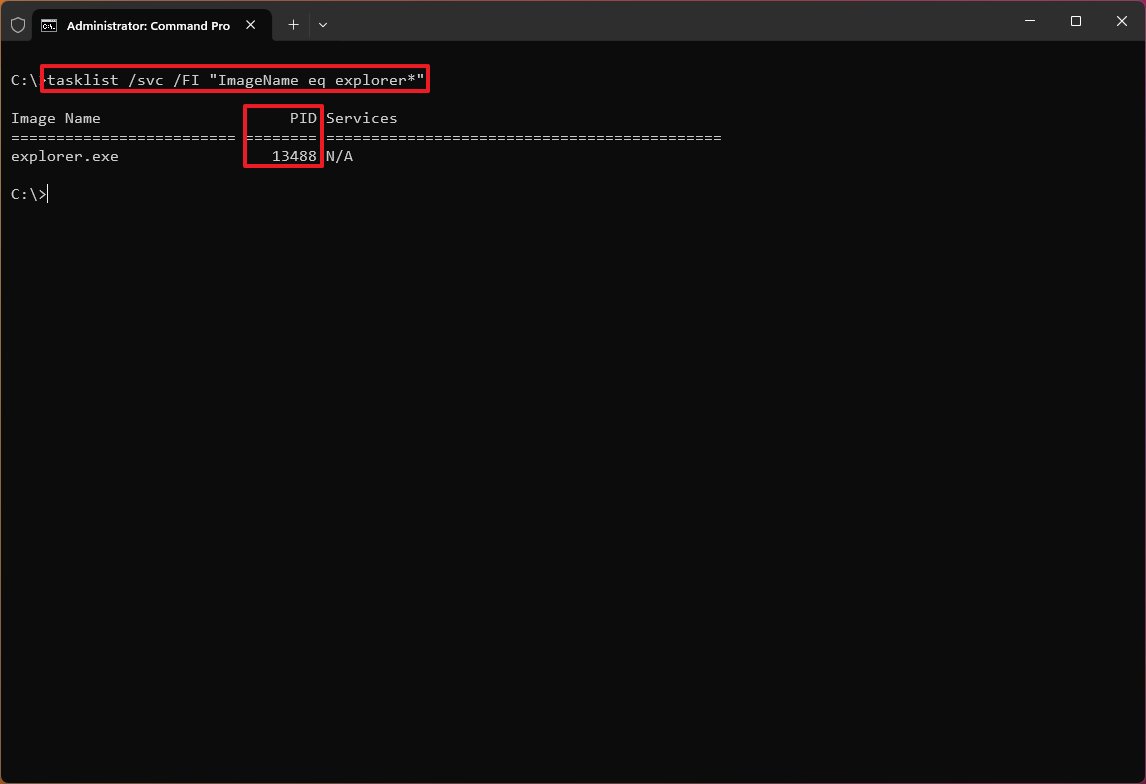
Once you complete the steps, Command Prompt will print the app information alongside the Process ID.
More resources
For more helpful articles, coverage, and answers to common questions about Windows 10 and Windows 11, visit the following resources:


.png?w=600)




